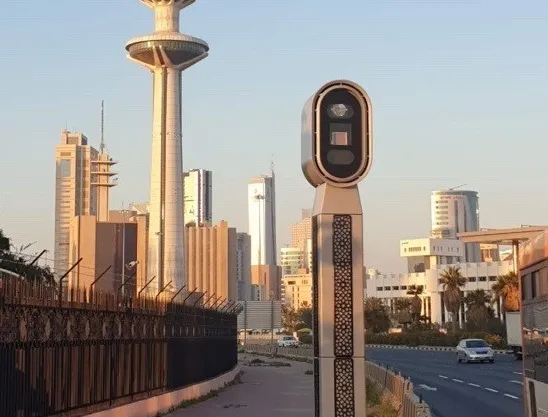
The Traffic Department of Kuwait has ordered more than 100 of Jenoptik's TraffiPole housings equipped with systems to enforce red light, speeding and other moving vehicle offences, such as illegal turns.
Jenoptik has worked in the Middle East for decades. With local partner First Joint Group, it aims to deliver the systems to Kuwait in the third quarter of the year in a contract worth "in the mid-single-digit million euro range".
The deal includes site surveys, installation, hardware and technical training. "We have been supplying the country with systems for 25 years to enhance road safety," says Tobias Deubel, head of Jenoptik’s Smart Mobility Solutions division.
"By choosing our newest systems, Kuwait is one of the first countries to seize the opportunity to reduce accidents at intersections in a very sustainable way.”
TraffiPole has been developed for use in hot climates, with a natural air-cooling system ensuring that all components work accurately at high temperatures.
The systems are equipped with an external flash unit and an alarm box to automatically alert authorities in case of manipulation or vandalism.
Humoud Al Rhoudhan, general manager of First Joint Group, says: “We are extremely content with the performance of Jenoptik’s systems and the partnership we have. Over the last decades, a decrease in accidents and fatalities is evident in Kuwait due to the systems.”










